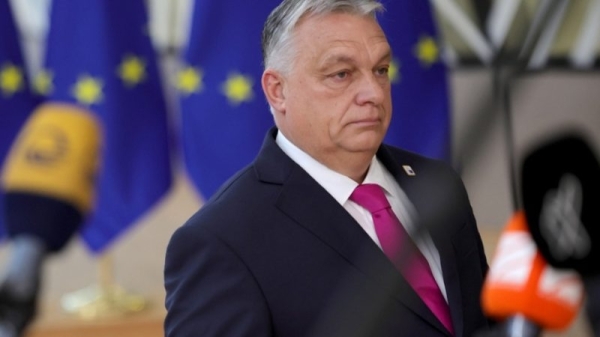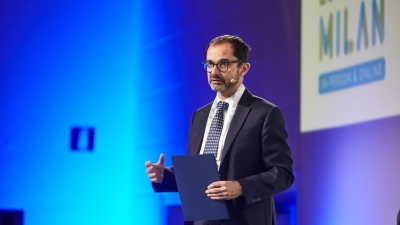EU unlikely to follow through on Hungary funding threat

The EU is unlikely to follow through on its threat to cut funding to Hungary if Budapest fails to approve a €50 billion Ukraine aid package later this week, experts told Euractiv.
Roughly €21 billion in EU funds to Hungary are already frozen over concerns about the Orbán government’s domestic attacks on the rule of law and human rights violations.
Zsuzsanna Vegh, an associate researcher at the European Council on Foreign Relations (ECFR), said that the FT’s report reflects the EU’s “growing frustration with Hungary” but stressed that significant legal obstacles would likely prevent Brussels from permanently suspending funds to Budapest.
“EU funding cannot just be suspended because the European Council says so,” Vegh said. “That’s not how it works. There has to be some legal ground… Vetoing an EU position is not a legal ground to suspend funding.”
On Monday (29 January), the EU also walked back suggestions that it would seek to cut funding to Hungary, with one senior official describing the document referred to in the FT report as a “background note [which] describes the current status of the Hungarian economy”.
“The background document does not outline a plan but makes a suggestion that is not in line with the course of action of negotiations,” the official added.
‘Using blackmail like there’s no tomorrow’
According to the FT, a document “produced by an official in the Council of the EU” details how, “in the case of no agreement in the 1 February [summit]”, EU leaders would “publicly declare” that EU funds to Hungary will be suspended.
The document reportedly adds that such a move could entail that “financial markets and European and international companies might be less interested to invest in Hungary” and “could quickly trigger a further increase of the cost of funding of the public deficit and a drop in the currency”.
The report elicited a furious reaction in Hungary, whose economy is already suffering from chronically high inflation and whose fiscal deficit is already among the largest in the EU.
“Brussels is using blackmail against Hungary like there’s no tomorrow, despite the fact that we have proposed a compromise,” Balázs Orbán, the political director of Viktor Orbán, wrote on Monday on X (formerly Twitter).
His words were echoed by Hungary’s minister for EU affairs Bóka János. “Hungary does not give in to blackmail!” he wrote on the same platform.
Hungary does not give in to blackmail!
The document, drafted by #Brussels bureaucrats only confirms what the Hungarian Government has been saying for a long time: access to EU funds is used for political blackmailing by Brussels. https://t.co/x5NExCufYm
— Bóka János (@JanosBoka_HU) January 28, 2024
“The document, drafted by #Brussels bureaucrats only confirms what the Hungarian Government has been saying for a long time: access to EU funds is used for political blackmailing by Brussels.”
He added: “#Hungary does not make link between the support for #Ukraine and access to #EU funds and rejects other actors doing so. Hungary has been and will continue to participate constructively in the negotiations, but will not give in to blackmail.”
‘Devastating consequences’
Maria Martisiute, an analyst at the European Policy Centre (EPC), warned that the EU’s threat, if carried through, would have “devastating consequences” for the Hungarian economy.
“[Cutting off EU funding] would reduce investor confidence in Hungary,” she said. “It would weaken its currency even more. It would have a significant impact on its gross domestic product.”
However, Martisiute noted that the threat was likely “a political move” that the EU itself likely “hopes will not be necessary to be utilised”. She also stressed that the urgency of supplying Ukraine with the funds required to resist Russia ultimately justifies the EU’s decision to “call Hungary’s bluff”.
The ECFR’s Vegh similarly emphasised the “major role” that European funding plays in Hungary’s economy but urged caution in interpreting what the EU’s overall negotiating strategy is.
“I obviously have not seen this document,” she said. “I have only read what the Financial Times published, but it is not clear to me how the strategy behind it would be achieved.”
“Vetoing an EU position is not legal ground to suspend funding. So what exactly would be the strategy there? It is not clear to me. And that’s why I would not want to speculate on that.”
The EU’s rebuttal of the FT report came on the same day that it announced that it would not apply the so-called “nuclear option” of invoking Article 7 of the EU Treaty against Hungary – thereby stripping it of certain rights as an EU member state – unless there was a “clear signal” from the EU Council that a majority of EU countries supported such a decision.
Read more with Euractiv




